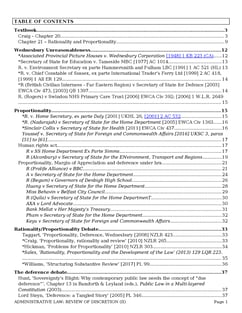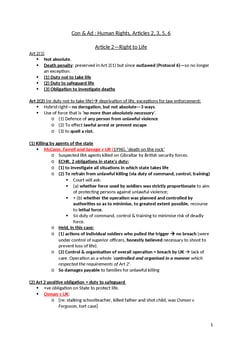R v IRC, ex parte National Federation of Self-Employed [1982] AC 617
Judgement for the case R v IRC, ex parte National Federation of Self-Employed
KEY POINTS
Individual taxpayers, and even groups of taxpayers, typically do not have a sufficient interest to request a court to investigate or complain about the tax affairs of other taxpayers. There is a strong public interest in not allowing this.
However, it is possible that there could be exceptional cases where the actions or inactions of the tax authorities could be challenged in court, but this would depend on the specific circumstances and evidence presented, particularly concerning allegations of breach of duty or illegality.
The doctrine of "sufficient interest" is a fundamental principle in administrative law that allows interested parties to challenge government decisions through judicial review when they can demonstrate a significant interest in the matter at hand.
FACTS
A substantial number of casual workers in Fleet Street were found to be drawing their pay under false names, resulting in an estimated loss of about £1,000,000 in taxes. The Inland Revenue wanted to address this issue and offered tax amnesty to ensure proper tax assessment and collection for the future. They also decided not to investigate tax losses for years prior to 1977-78 if the new arrangement was accepted.
A company called "The Federation" applied for judicial review, arguing that the Inland Revenue's decision not to pursue full tax claims was unlawful and that they should collect taxes according to the law. The Divisional Court initially rejected the application, stating that taxpayers couldn't monitor the tax authorities through legal proceedings and that The Federation lacked a "sufficient interest" in the matter.
However, the Court of Appeal, with one judge dissenting, allowed The Federation's appeal, stating that if the Inland Revenue's actions were indeed unlawful, The Federation had a valid grievance and therefore had a "sufficient interest" in the case.
JUDGEMENT
Appeal allowed.
COMMENTARY
The case highlighted the importance of judicial review in challenging decisions made by government bodies, such as the Inland Revenue. It affirmed the principle that government decisions must be made in accordance with the law and that the courts have the authority to review those decisions.
ORIGINAL ANALYSIS
Inland Revenue (IRC) offered a tax amnesty to a class of workers who had previously evaded tax. NFSE sought a declaration that IRC had exceeded its power.
HL held that NFSE had no standing, as they did not satisfy the “sufficient interest” test, set out in Supreme Court Act (see above) because a taxpayer’s interest alone is insufficient.
The lords agreed that standing was to be determined if possible at the permission stage but sometimes it would be necessary to return to this at a substantive hearing where locus standi depended upon the PAs powers, decision etc.
Lord Wilberforce
The question of sufficient standing can be dealt with at the earliest possible stage (see week 6 reading- permission stage) in cases where Plaintiff has obviously failed the sufficient interest test, so as to prevent the courts from being flooded.
However in other cases it may need to be heard at the actual JR hearing because in some cases whether Plaintiff has standing will depend upon the range of Defendant’s powers and the consequence of their misuse.
Sometimes “the question of sufficient interest can not…be considered in the abstract or on an isolated point: It must be taken together with the legal and factual context.”
-
NB the test of “sufficient interest” is about whether a person can bring the case in the first place. However a higher degree of interest may be required for the remedy of mandamus to apply
He is alone in thinking this. Diplock and the others reject this.
A taxpayer’s interest alone is inadequate to cofer locus standi.
Lord Diplock
The permission stage is usefully used to exclude claims made by “busybodies with misguided or trivial complaints” and to allow public authorities to safely proceed with effecting their decision.
NB his later comments though: “It would…in my view, be a grave lacuna in our system of public law if a pressure group, like the federation, or even a single public-spirited taxpayer, were prevented by outdated technical rules of locus standi from bringing the matter to the attention of the court to vindicate the rule of law and get the unlawful conduct stopped.”
To say that the office of AG is sufficient and hence no representative standing is needed is wrong: In practice AG never takes action against govt departments. It is also not enough to say that departments are accountable to Parliament: They are responsible to the court to account for the lawfulness of what they do “and of that the court is the only judge.”
With the majority, he said Wilberforce was wrong about having different tests for standing and remedies such as mandamus. The “sufficient interest” test was the same for both.
Lord Fraser
The correct approach...is...to look at the statute under which the duty arises, and to see whether it gives any express or implied right to persons in the position of the applicant to complain of the alleged unlawful act or omission.
RELATED CASES
For Further Study on R v IRC, ex parte National Federation of Self-Employed

Administrative Law notes fully updated for recent exams at Oxford and C...
Need instant answers? Our AI exam tutor is here to help.
Ask questions 🙋 Get answers 📔 It's simple 👁️👄👁️
Our AI is educated by the highest scoring students across all subjects and schools. Join hundreds of your peers today.
Get StartedSimilar Cases
Related Product Samples
These product samples contain the same concepts we cover in this case.
| GDL Constitutional and Administrative Law | Locus Standi Notes (5 pages) |
| Administrative Law | Standing Notes (43 pages) |
| Administrative Law | Standing Notes (16 pages) |
| Administrative Law | Standing Quick Notes (3 pages) |

 Since 2010, Oxbridge Notes has been a trusted education marketplace, supplying high-quality materials from top achievers at universities like Oxford, Cambridge, LSE, Harvard, and Yale.
Since 2010, Oxbridge Notes has been a trusted education marketplace, supplying high-quality materials from top achievers at universities like Oxford, Cambridge, LSE, Harvard, and Yale.